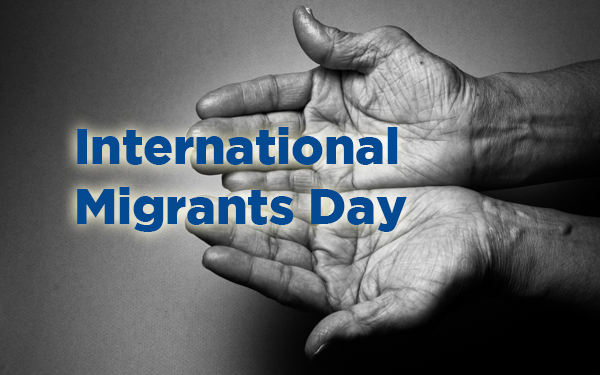
By Shirley Torres
The United Nations General Assembly proclaimed December 18 as International Migrant’s day in December 4, 2000. We dedicate the day to all the workers in the world who left their countries due to several reasons but mainly due to economic reasons. These workers were willing to relocate to any part of the world where they could earn better wages in order to provide for their loved ones. They unselfishly accepted the fact that they were going to be separated and live far away from their families in hopes for a better and a brighter future. But, would there really be a better and a brighter future ahead?
They are the migrant workers. They encounter a lot of hardship, sacrifices and challenges. Most often, they find themselves in a country that they know very little or nothing about at all. They end up immersed in a culture totally different from theirs and it takes a lot of time and effort and before they are able to adjust. A language barrier leading to misunderstanding and miscommunication often exists and can create tension and stress right away.
Migrant workers are quite vulnerable as they do not know local employment laws that protect their rights as workers. Some employers take advantage of this leading to lower wage rates, limited access to health care benefit or services and exploitation as well as physical, sexual or emotional abuse.
In Canada, migrant workers work primarily in the service sector. While they are able to live and work legally in Canada, limited funding is available for them to access services (such as free English classes and settlement support) that would enable them to integrate more successfully in the community.
This topic about migrants is dear to my heart because I come from a developing country where, due to poverty, many leave their homes, their families and their loved ones behind to be in any part of the world that offers better means and resources to support them. It is too sad that instead of achieving what they were aiming for, some of their hardships and sacrifices ended in tragedy because they were exploited and taken advantage of.
Today, I pay tribute to the millions of migrants in the world for their courage, sacrifices and of course their valuable contribution to their community, their society, their countries and the world.
I would like to pay tribute and remember in a special way a wife, a mother a daughter – a migrant worker. I dedicate this day to her. Please allow me to share her story.
Flor Contemplacion was a 42 year old Filipina housekeeper convicted by a Singaporean court of killing another Filipina housekeeper and the three year old Singaporean son of her employer on May 4th, 1991. After she confessed to the murders, it was later claimed that she made the confession under duress.
She was executed by hanging in March, 1995.
Click here to read her heartbreaking story.
It has been twenty one years since this tragedy and there are still other similar stories to tell. Let us all work together to ensure the protection of migrants’ rights and dignity by putting an end to the discrimination against them. Let us also raise awareness of their valuable contributions.
Shirley Torres is the UNE’s Regional Human Rights Representative for the British Columbia and Yukon region.








